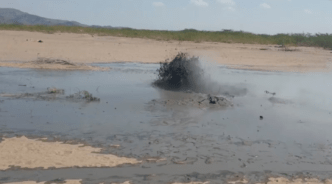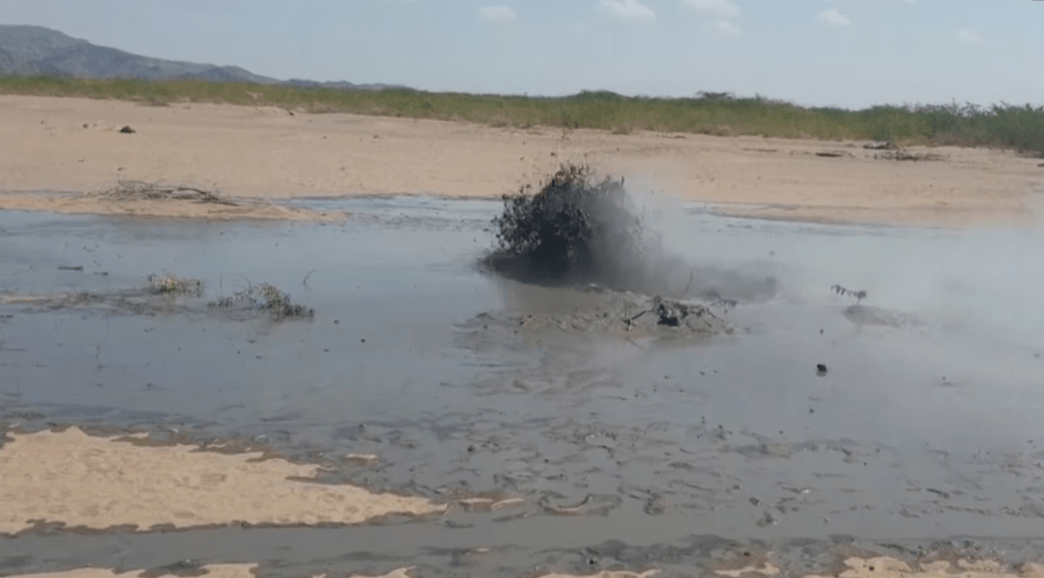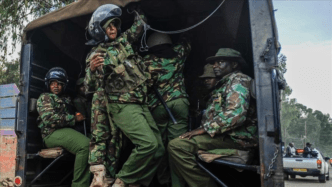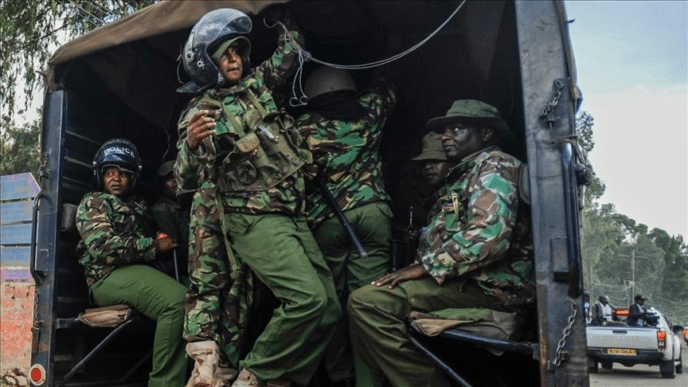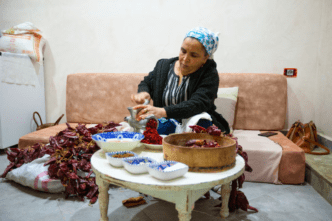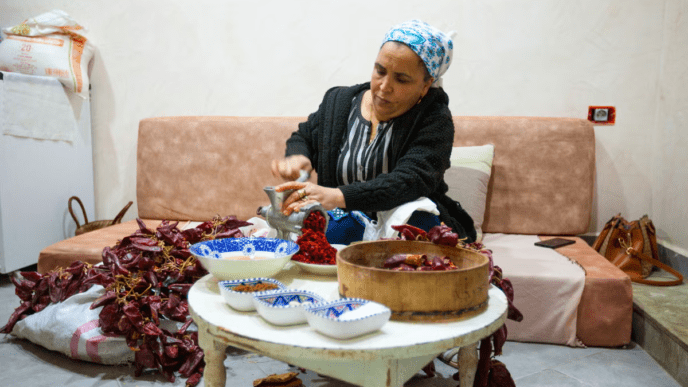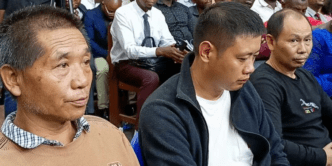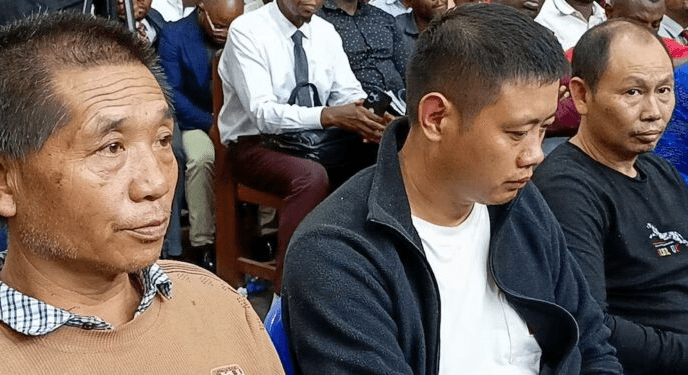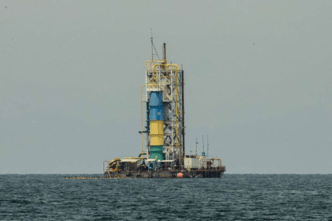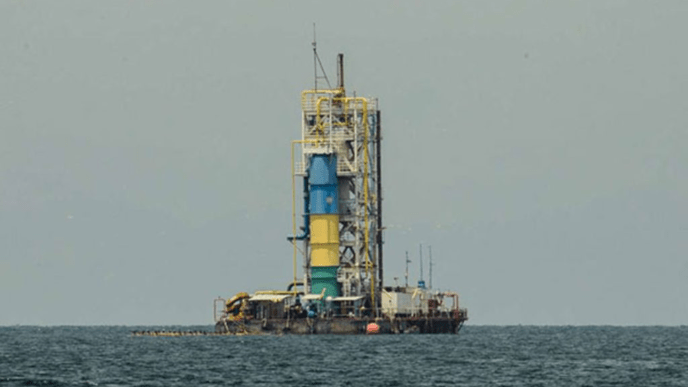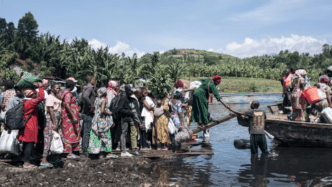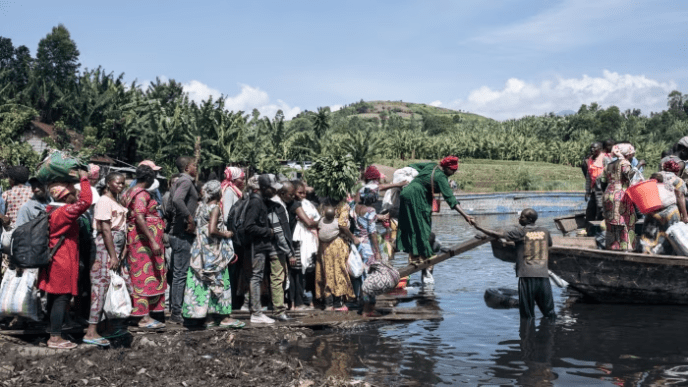AWASH FENTALE, AFAR REGION, ETHIOPIA — For months, Ethiopia’s Afar region has been the epicenter of seismic and volcanic activity, transforming the once-serene semi-desert plain between the Dofan and Fentale mountains into a zone of destruction.
Recent weeks have seen intensified activity, including a 5.8 magnitude earthquake that shook the region and nearby towns like Awash Sebat Kilo and Awash Arba, located about 220 kilometers from Addis Ababa.
The tremors have left the land scarred with rifts, spewing smoke, hot mud, and sulfuric-smelling water, forcing thousands to flee.

Mass Exodus and Rising Fear
The earthquake and volcanic eruptions have displaced an estimated 10,000 residents from Seganto, a small area known for its unique vegetation and volcanic activity. Community members recount terrifying experiences.
“We heard a big noise from the ground; it sounds like a gun salute,” said Ado Ali, a mother of four. “Our animals were shocked. We were praying to get out safely.”
Residents report increasing volcanic activity, with cracks spreading between the Dofan and Fentale mountains. “The holes through which the explosion is seen used to be few; now there are more than 10 in Seganto alone,” said Hassan Kamil, a local elder.
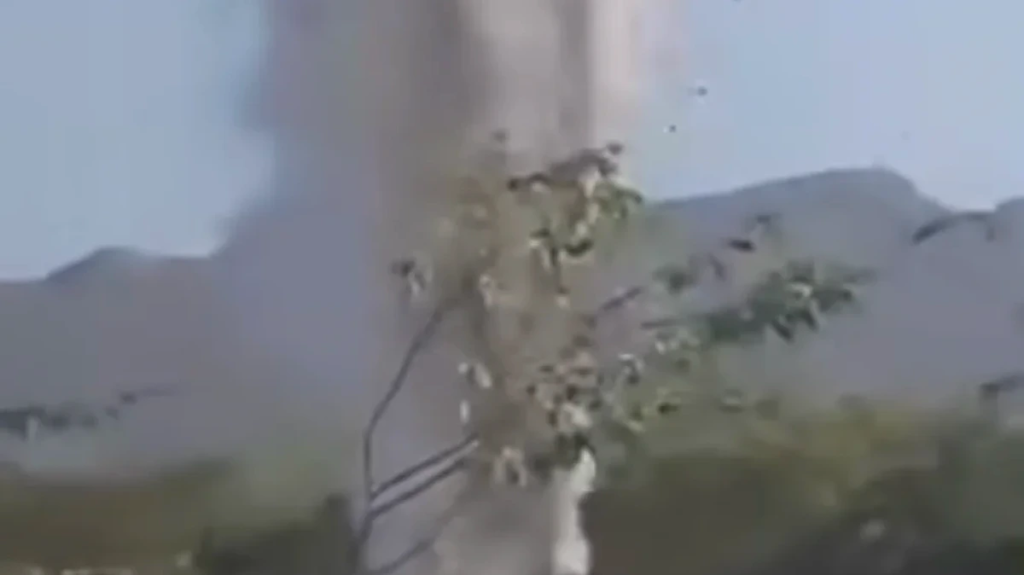
Destruction of Infrastructure
The earthquake has left extensive damage in its wake. Local infrastructure, including 37 schools, has been destroyed, displacing 5,000 students. A nearby state-run sugar factory employing over 4,000 people has also ceased operations.
In response, the Ethiopian government announced plans to evacuate at least 80,000 residents from active volcanic zones in Afar, Oromia, and Amhara regions. Officials report that 54,000 people have already been relocated.
Humanitarian Crisis and Struggles in Shelters
Many displaced residents have sought refuge in shelters in nearby towns like Awash Arba. However, the influx of evacuees has strained resources, leaving some without basic necessities.
“The situation is tough. Many did not get shelters, and drinking water is also not adequate,” said Fakir Mohammed, a displaced resident. Similarly, Balli Hasan, a mother of three, expressed relief at escaping the danger but described the challenges of camp life, including inadequate shelter from the sun.
Relief Efforts Underway
The Ethiopian Disaster and Risk Management Commission, in collaboration with humanitarian organizations, is working to provide aid.
Over $2.2 million (280 million Birr) worth of food and nonfood items has been dispatched to crisis areas across Afar, Oromia, and Amhara.
Despite these efforts, residents remain fearful as some shelters are just 10 kilometers from the epicenter. The government is conducting safety reviews to relocate evacuees to more secure locations.
A Region on Edge
As Afar grapples with ongoing seismic and volcanic activity, questions arise about the future safety of its residents.
Will the current relief efforts be enough to stabilize the region and prevent further loss?
Read More:
